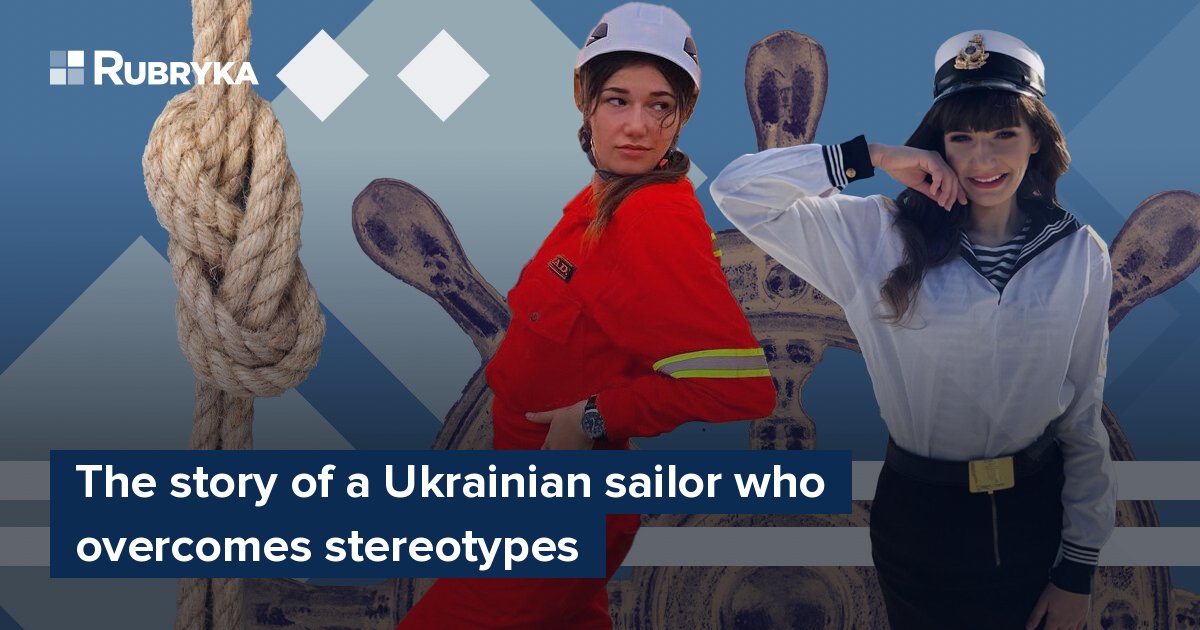
"Enrolled in a marine specialty to get married successfully"
Elizaveta Serbina is almost 22 and already has two voyages behind her back, although she is still getting her master's degree. She says that becoming a sailor was not a childhood dream. Serbina started looking for a career when she finished school — that's how she got to an open day at the Odesa Maritime Academy, where she learned about the specialty of navigation, making sailors become captains.
Serbina began to look for females who already understood the intricacies of working at sea. Having learned more about the peculiarities of the maritime profession, in 2018, she entered the naval academy in the specialty of navigation and management of sea vessels. Then, among 300 cadets, seven females started their studies.
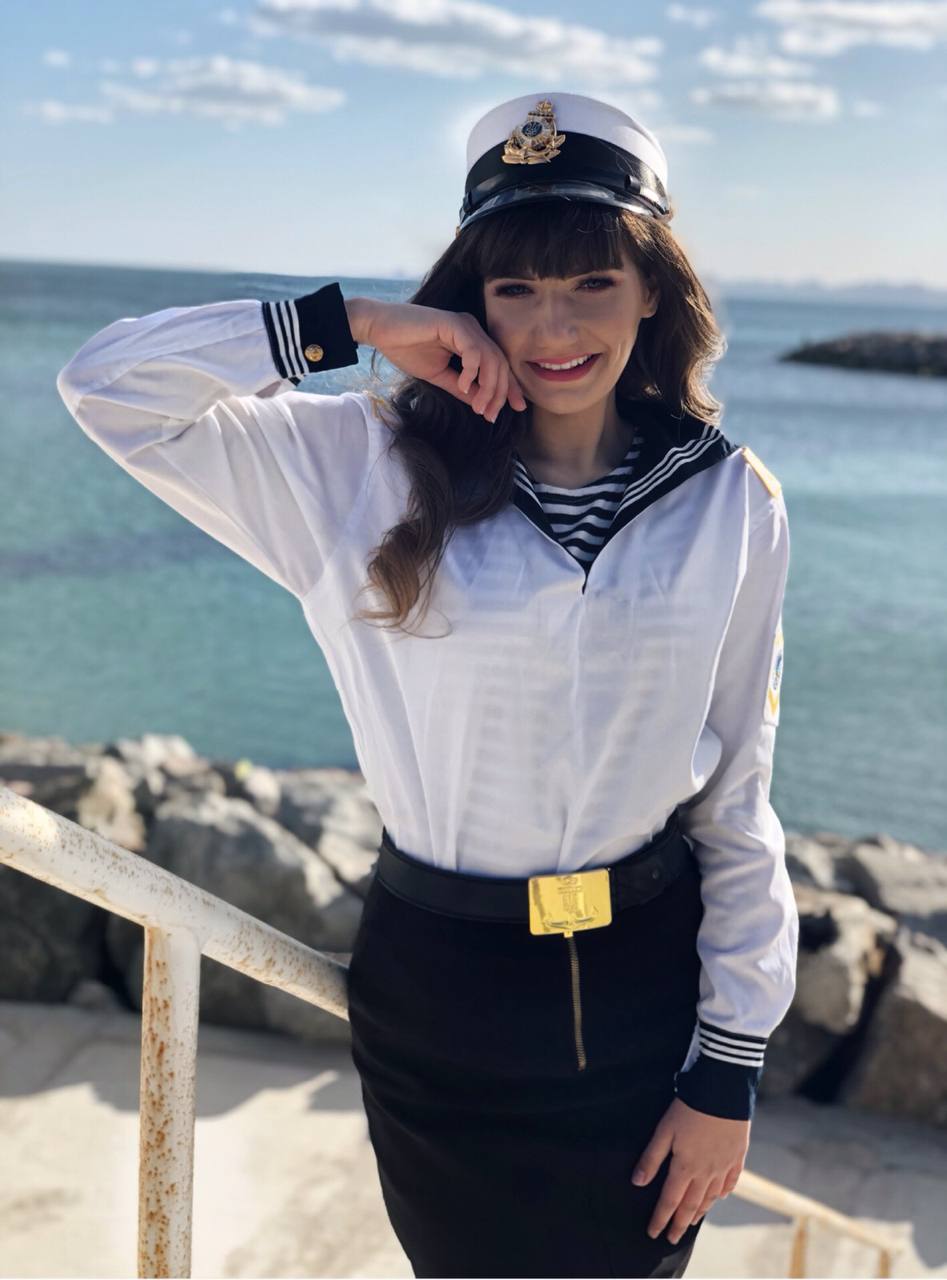
"You enrolled in a naval specialty to get married successfully," Serbina often heard this phrase from relatives, acquaintances, teachers, and cadets with whom she studied. With a smile, she says that this is her favorite expression.
"When I was a first-year student, I paid for my education. Did people really think I was paying over a thousand dollars to find a husband? This is not some marriage agency. This is ridiculous".
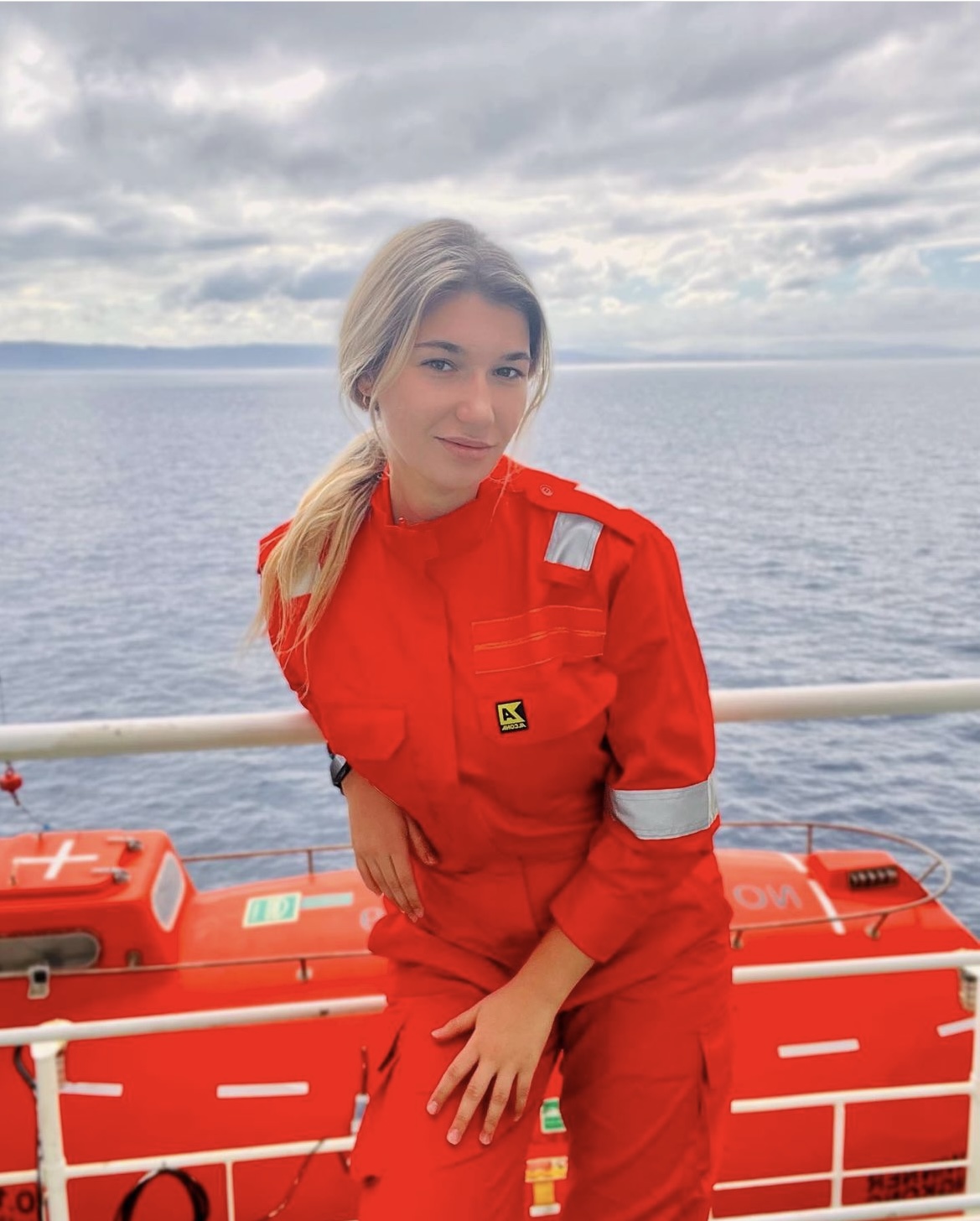
At the same time, the sailor was convinced that she would not go on voyages. When she goes on maternity leave, she still won't be able to take the child to the sea and will not like the tedious work. Despite everything, Serbina remembers her university years with a smile.
Once, she was told, "You passed the exam; let's see how you will get to the voyage. You are a girl; no one will ever give you a job."
"In my opinion, such cases happen not only with sailors but also in other professions. There will always be someone who will tell you that you can't do anything. You should just not focus on this and continue towards your goal."
"Are you looking for a voyage for your husband or father?"
In the second year, Serbina began looking for a voyage since cadets were allocated a certain time to gain practical knowledge. The situation was complicated not only by the COVID-19 pandemic but also by the reluctance to take a woman on the voyage. According to Serbina, she could call up to ten crewing companies that act as intermediaries between sailors and maritime companies in a day. They rejected her because of her gender, even though there could be information on the company's websites that they employ female sailors. Half of the crew refused to talk to her when they found out the female sailor herself wanted to go on the voyage.
"They asked me: 'Are you looking for yourself? Is it for a boyfriend, father, or relative?' If I said that it was for myself, I heard in response: "No, no, we don't take girls."
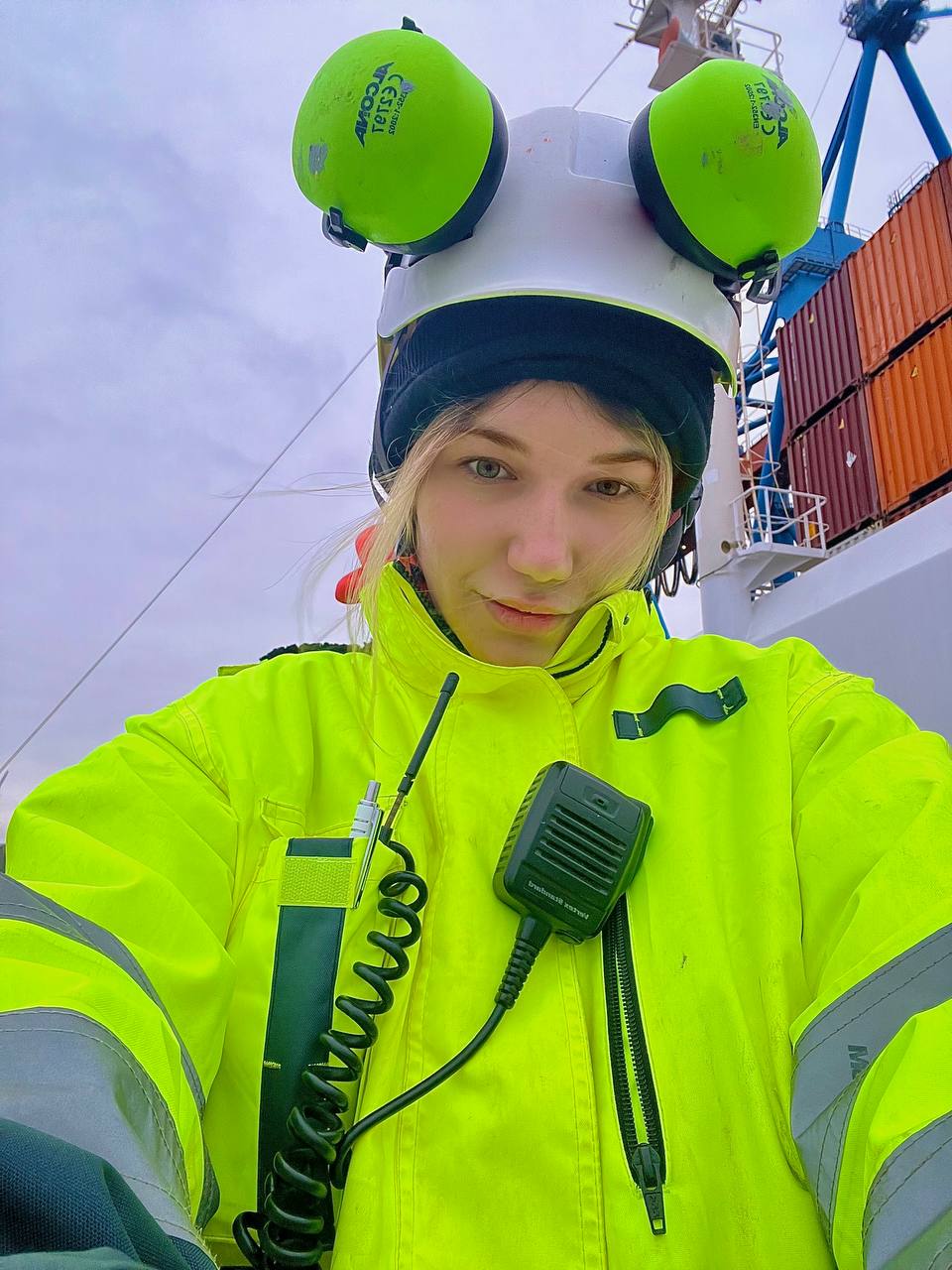
Sometimes Serbina received a ray of hope — she passed exams and interviews and was promised a call and information about the results, but contact with the employers was lost. Sometimes, however, she received unexplained rejections in response.
"They told me, 'You're a girl, and we have such a job at sea, and you won't be able to cope; we feel sorry for you.' You don't have to feel sorry for me, and I knew where I was going and what was waiting for me."
As the sailor recalls, she had a case when she went through all the stages of selection for a voyage. She was told that she had passed everything well. However, as a result, they decided to take a male sailor instead of her, justifying the decision by the fact that it would be difficult for her to work exclusively among men.
"It is unfair that I was evaluated and not hired because of something I cannot change."

Constant rejections and testing exhausted the girl. A lot of time was spent on passing the selection, which ultimately ended in rejection.
"Even though I'm a girl, no one told me, 'Well, you can sit out on that.'"
At the end of the third and almost the entire fourth year, Serbina managed to work at sea. She was on two voyages and worked as a cadet on a container ship during this time. Each of her work contracts was about six months.
The average working day lasted about 10 hours, but it could change depending on the amount of work. First, the sailor had to work for a certain time on the deck, where it was necessary to paint, remove rust, and wear twist-locks — special equipment for tying containers to each other vertically, which weigh about 6 kilograms. In addition, she was engaged in documentation and ballast operations — leveling the ship — working with the third captain's assistant, taking inventory, and helping him with equipment that ensured safety. At the port, she had to monitor the loading of cargo, as well as meet inspections and migration services.
"Whether you are a man or a woman, you have responsibilities that you must fulfill. Even though I'm a girl, no one told me, 'Well, you can sit out on that.' It doesn't matter if you have any problems or you are tired — there is work to be done. You can't tell the ship, 'I can't anymore'".
The sailor managed to visit the countries of Europe, Asia, and Africa. As Serbina says, the first voyage was difficult, as it was her first experience. Currently, she is getting her master's degree. After passing the exams, she plans to leave for the next voyage.
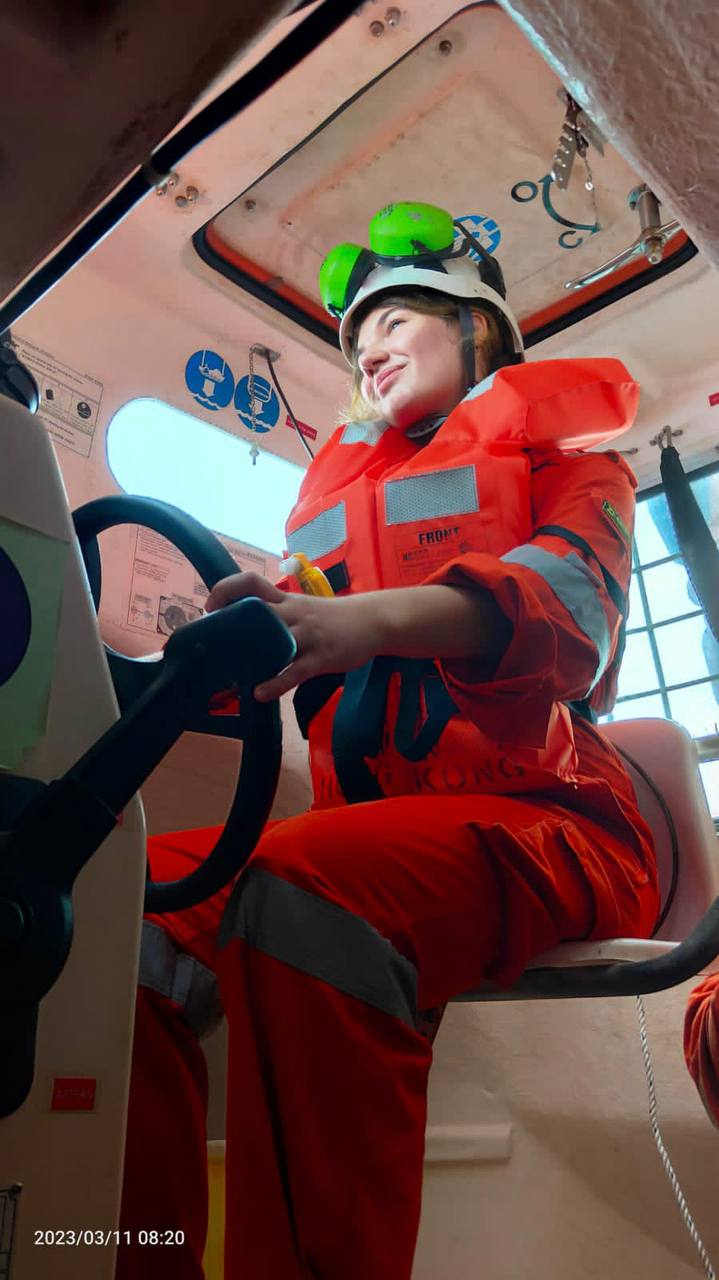
"Men's Team"
Serbina is almost always the only female on the ship. She says that she also experienced unpleasant incidents:
"On the first voyage, there was a case when one of the crew members told me: 'If you don't know this, then throw yourself overboard.' Then, as he explained to me, it was his kind of joke, but it was unpleasant for me to hear it," the sailor shares.
Another time, one of the colleagues strongly suggested that she marry him, although they hardly communicated.
However, according to Serbina, the sailor's company reacts to such cases and holds monthly training and meetings dedicated to harassment and bullying on the ship. Sailors also have special contacts they can call in conflict situations.

Voyage is not only work but also life. Serbina spent the Christmas holidays on voyages and remembers that one of the ship's captains dressed up as Santa Claus and gave everyone gifts. In addition, the crew arranges teambuilding barbecues to relax.
After becoming a sailor, will I be unemployed?
Serbina advises girls who consider choosing a maritime profession to go for it. According to her, currently, the situation regarding the attitude towards female sailors is changing — more women are starting to be taken on voyages than a few years ago. Even now, when she returned from a recent voyage, the company asked her if she could recommend someone from her acquaintances because they were looking for female sailors.
According to Serbina, there are many more females in the sea, which is no longer something strange and unusual. The sailor attributes such changes to several reasons, including the state of war in Ukraine, which makes it difficult for men to leave, and the activities of the International Maritime Organization, which promotes gender balance in the maritime sphere. On its initiative, eight Women's Maritime Associations (WIMA) were formed, which cover 152 countries and encourage the employment of women at sea and overcoming stereotypes.
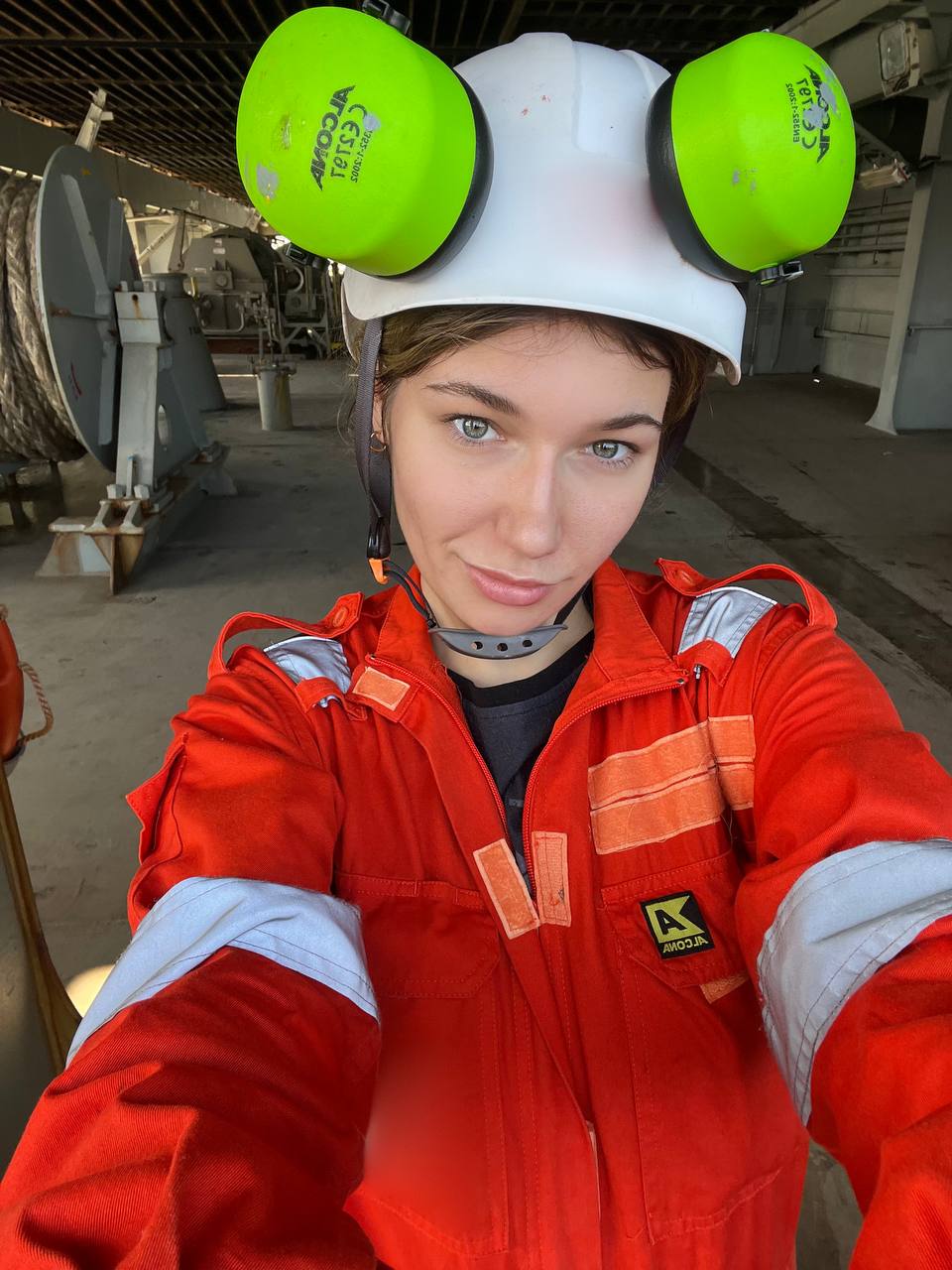
"Don't compare yourself with anyone, especially with men. Do not listen to what those around you tell you, especially when they say the sea is not a woman's business. There are no such concepts anymore — a female or non-female profession. We already live in a time when women work in positions they were simply not allowed to for many years."
The sailor recalls being told she could not enter the maritime academy, but she did. She was told she could not go on the voyage, but she had already been to two. She was told that she would last only a month on the ship, but she had already worked twice for half a year. Despite society's prejudices, one should always follow their dream, as the female sailor did.


